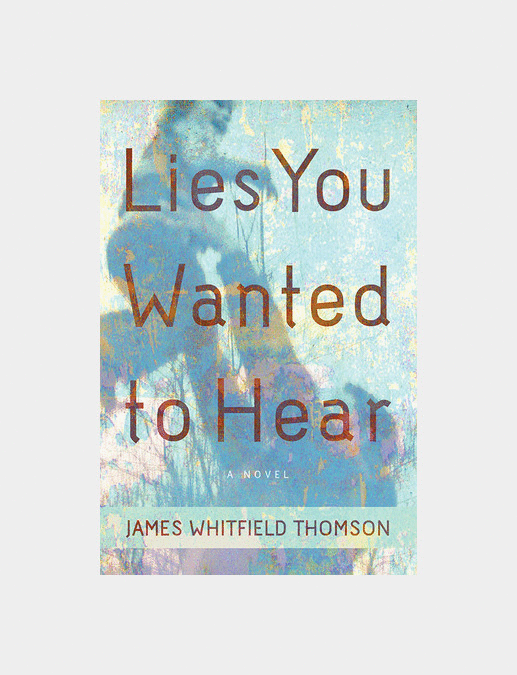Here’s What Happened When I Took Melatonin Every Night for a Month
The good, the bad, and the gummy
During my brief –but miserable–bout with coronasomnia that plagued me for a few months, I obsessively fixated on trying any possible solution that would alleviate my lack of sleep dilemma. From healing frequencies on YouTube to herbal teas, meditation apps, a new mattress pad, all the way to even rearranging the furniture in my room, nothing was allowing me to fall back into my much-needed eight hours of blissful sleep. After trialing these more holistic remedies for months with no solace, I turned to an answer that I told myself I would only test if I became hopelessly desperate. Unfortunately for me, I eventually reached this point of turmoil. Feeling helpless and as though I had nowhere else to turn to, I typed into Amazon the thing I had been dreading to purchase for months – melatonin.
What is Melatonin?
In case you’re not familiar, melatonin is a hormone that is naturally produced by the brain. It helps with regulating the body’s natural circadian rhythm, aka the sleep-wake cycle. Traditionally, darkness induces this hormone to be released in the body and causes feelings of sleepiness. However, as the world now stays lit for hours after sun-down via TVs, phones, and computers, some people find that they need a little extra assistance to feel relaxed and ready to doze off. Also, some people just have a harder time winding down than others and find that they benefit from some help.
Enter in melatonin supplements. These supplements contain the hormone in edible or pill form and emit the same feelings of tiredness that the brain needed a little hand with. It is also known to be a short-term aid for insomnia. And in my case, as I had been dealing with a form of insomnia, I came across this little supplement while researching recommendations for relief.
To Take or to Not Take?
For some background–I am not a person who likes to take medicine if I don’t have to. I trust science and support the medical advancements we have today, but I’d rather suffer through two hours of a headache or a dull pain in my back than pop an Advil and call it a day. My hesitation when it comes to supplemental medication is not that I don’t trust it; it lies in the fact that I fear that I’ll somehow become immune to it if I take too many. I worry if I take too much, medicines won’t work for me in the way they should if there comes a time when I really do need them.
Anyways, my skepticism when it came to melatonin was that I would become too reliant on it and would never be able to sleep again without one of those–surprisingly delicious– berry-flavored gummies. I had put off buying the supplement for so long because I worried it would permanently negatively alter my sleep habits. I had also read that it can cause daytime drowsiness as a side effect, which also factored into my reluctance. And while melatonin is mainly used on an as-needed basis for situations such as jet lag or working late into the night, I had read online that doctors ruled it safe to use every night for a short-term period in cases of insomnia.
Despite my unwillingness to attempt using melatonin, desperate times call for desperate measures. After doing some more research on the “best” melatonin brands, I convinced myself that I would be able to take it for a short term and not let myself become controlled by a singular gummy. After digging and reading through various articles and countless reviews, I deemed MegaFoods’ 3mg Melatonin as the best fit for my needs. A quick Amazon search and a click of the “add to cart” button, and the bottle was on its way.
I took a gummy every night, approximately an hour before bed, for about a month. Here’s a week-by-week recap of my experience.
Week 1: Oh. My. Goodness. I felt as though melatonin had been directly sent to me from the heavens above– it was my new holy grail. About 30 minutes after I would ingest the gummy, the delicious feeling of sleepiness would wash over me like a soothing wave. As my insomnia had made it so it would take me hours (I’m talking 2 to 3) to even fall asleep once my head hit the pillow, this new phenomenon of being able to drift off moments after turning off my light was an incredible feeling. The melatonin seemed to subside my nighttime anxiety and made it so my brain and body could relax. I would wake up feeling light and refreshed, and my days no longer consisted of me dragging along like a sleep-deprived zombie. I regretted not trying it sooner.
Week 2: Relishing in my newfound energy, I decided to keep up the gig of my nightly melatonin fix. I felt no adverse side effects, so why not keep going a while longer? While the first half of week two looked similar to the affairs of week one, mid-week is when things started to shake up a little. Suddenly, as soon as I would wake up, I’d be hit with grogginess. I could still fall asleep quickly at night, but my mornings were no longer looking so bright-eyed and cheery. It became difficult to make it through the day. While I was getting 7-8 hours of sleep, exhaustion pursued me during my waking hours. Contemplating stopping the supplement, I weighed my options: A) continue taking it at night and push through a day of fatigue, or B) stop taking melatonin and risk going back to sleepless nights. In the end, I ended up going with option A. (Spoiler alert– this was a huge mistake.)
Week 3: Well, if I thought daytime drowsiness was the worst it was going to get, I was in for a big surprise. During week three, my nights of soundly sleeping through the complete eight hours were met with an upheaval. I started to wake up every night around 4 or 5 am (after going to bed around 1 am, my usual) and could not fall back to sleep for the life of me. I have always been someone that wakes up in the middle of the night to go to the bathroom, but I never had trouble going back to sleep. That was, until now. I was still able to initially fall asleep easily due to the little purple supplement, but woke in the wee hours of the morning with no chance of returning to my dreams. In my opinion, this was worse than not being able to fall asleep in the first place. I was miserable. How I let this story go on to see the fourth week is beyond me.
Week 4: Still clinging to the hope that the gummies would be able to make me feel like they did during week one, I continued to take them. I thought maybe the problems I faced during week three were just a small bump in the road, and I was still desperate for relief. Sadly, for me, the bump in the road never halted. Not only was I waking up and trucking through my day with 3-5 hours of sleep, but I noticed that my nighttime anxiety was becoming worse. The precious hours from 10pm to 1am I once spent watching TV or reading were replaced with fear of going to sleep. I was so terrified of waking up in the middle of the night and having to suffer through another exhausting day that the anxiety followed me and ruined a time I once looked forward to. I also started to become extremely anxious during the day and terribly anticipate bedtime. I actually never ended up finishing the gummies through week four, as I decided it was time to quit torturing myself– enough was enough.
Final Verdict
Obviously, my encounter didn’t go as I hoped–it went exactly how I feared it would. During the weeks I took melatonin, my sleeping patterns were drastically altered. Even worse, it took about a month to fix my sleep schedule after I stopped the supplement. Maybe my trial would have gone differently with another brand, but I’m not too keen on testing out that theory. And while I’m no scientist or doctor and can’t say my problems were for certain caused by my melatonin intake, I do know that they started to alleviate once I cut it out of my life. When all was said and done, I actually ended up beating my coronasomnia with a change of mindset and positive thinking tools.
Nonetheless, I wouldn’t completely rule out melatonin in the future for occasional use. However, using it nightly is evidently not meant for me. Everyone is different, and there is no one size fits all in this circumstance. And I’m okay with that. Honestly, if anything, I’m relieved not to be tied to this supplemental hormone any longer. I’m proud that I healthily beat my sleeping issues, and I feel a newfound sense of freedom now that I enjoy a peaceful eight hours of tranquil rest again. I wish I could say melatonin helped me, and my experience had gone down differently, but hey, you live, and you learn.
*Disclaimer, this is based on a personal experience and story and is not in any way supposed to be medical advice. I am not a doctor. Always talk to your doctor before trying a new supplement or medication.






